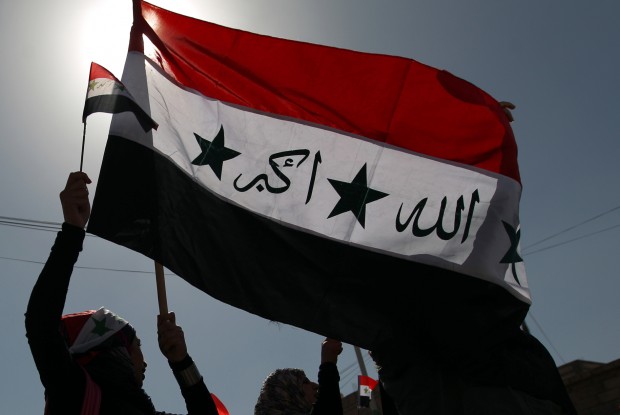A decade has passed since the huge American mistake that saw then President George W. Bush shooting himself in the foot. The difference between this president and his father, George Bush Senior, is that the latter brought together a coalition of 33 different countries, including Syria and Egypt, in order to liberate Kuwait from Saddam Hussein. However George Bush Junior thought that Tony Blair would be enough, and refused to listen to the advice of then French President Jacques Chirac, who warned him against opening the “gates of hell”.
To summarize the ten years since then, we have seen Saddam Hussein leave the scene only to be replaced by this proponent of the “state of law”, Nuri Al-Maliki. Iraq had been at a crossroads, but now it is clear that it has taken the path towards fragmentation. Iraq had been Arab, while today it is Iranian. Corruption in the country had been regulated, whereas now this is worth hundreds of millions. It was Ahmed Chalabi who encouraged the Americans to come to Baghdad, only to leave the country for Tehran, where he is now at his rest. This was all part of the ‘genius’ plan led by Dick Cheney and Donald Rumsfeld, while its primary executor was none other than Paul Bremer, whose time in era was marked by controversy. His era was characterized by a flawed vision, weak decisions, and even worse implementation. The first thing that Bremer did was to dissolve the majority of state institutes and organizations, which had been in place for the better part of fifty years. He began by dissolving the national army, while Bush remained oblivious of the nature of this huge blunder. Not only did this represent a massive humiliation to the Iraqi people and military establishment, it also resulted in the instant creation of a rebel army.
We also saw the mass looting of Baghdad’s museum and Iraqi heritage and antiquities, depriving Iraq of its own renowned history. This is precisely what is happening in Syria today. They punished Iraq as a whole, rather than the leadership, namely Saddam Hussein and his family, particularly half-brothers Watban and Barzan Al-Tikriti.
Saddam Hussein, whose first name means collision or clash in Arabic, truly lived up to his name, destroying everything in his path; his comrades, family, and neighbors, not to mention Iraq itself, the region and beyond. He believed that he could destroy Iran, and then the US, and when he found the noose tightening around him, he sought to destroy Kuwait. He even set his eye on the UAE, reportedly seeking to establish a super-oil producing country under his control. He looked at the country as his own private playground, as did his sons Uday and Qusay. This impression was further strengthened when he appeared on the balcony of his presidential palace holding a machine gun in his hands and accompanied by his sons. At this point, he pointed the gun in the air and fired wildly.
Mao Zedong famously swam across Yangtze River to demonstrate his physical prowess, while Vladimir Putin has demonstrated his judo skills and piloted a hand-glider. As for the former Iraqi president, he fired into the air surrounded by his sons; not ministers or the military council or the national secretariat, but rather Uday and Qusay.
The solution in Iraq cannot be achieved by force of arms, particularly as there is always a stronger force or weapon around the corner. Nor can this be achieved by executing former comrades. This was similarly not achieved by preparing Uday and Qusay for power, and nor was this secured with the killing of Saddam Hussein’s guileless sons. The only solution is to allow the Iraqi people to build and develop Iraq, rather than helping to build other countries while in exile abroad.

That is a good summary of the U.S. failures with regard to Iraq, but it is incomplete without addressing the intractable hostility between Sunnis and Shiites. As history has shown time and time again, a house divided within cannot stand. This same hostility within Islam is evident today in Syria, Pakistan, Bahrain, and even Saudi Arabia.